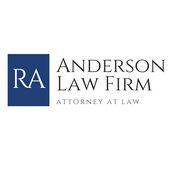
If you need to file for bankruptcy, you may be trying to understand which debts can be discharged. Discharging a loan removes your legal obligation to pay back a lender, but the provisions vary based on the filing chapter and type of debt. The guide below explains what can happen to any current loans and how bankruptcy will affect your ability to borrow in the future.
Current Loans
Personal Loans
The outcome of your personal loan balance depends on which chapter of bankruptcy you pursue. Under Chapter 7, the bankruptcy trustee sells off non-exempt assets to repay the debts, including an outstanding loan balance. In Chapter 13 bankruptcy, you’ll adhere to a repayment plan; fulfilling this agreement may make you eligible for additional debt forgiveness.
Auto Loans

Auto loans are considered secured because it has collateral. This means the lender is within their right to repossess and sell the car if you stop making payments. The same rule applies when filing for bankruptcy under Chapter 7. Vehicles are only considered exempt if you own the car outright or are still keeping up with the loan payments.
There are a few options available if you have enough income to qualify for Chapter 13 bankruptcy. Continuing to make loan payments allows you to keep the car. If you don't have enough equity in the vehicle yet, ask about buying out the non-exempt portion of the asset or including the auto loan in the repayment plan.
Student Loans
Canceling student loan debt requires borrowers to prove undue hardship in bankruptcy court. You must be able to prove that the hardship is unlikely to end anytime soon, the hardship will leave you with no standard of living, and that you made an attempt to repay the debt. As with a personal loan, assets are used to pay back the lender under Chapter 7 bankruptcy. Filing Chapter 13 bankruptcy allows you to keep some assets under the repayment plan.
Future Loans
Lenders complete a risk assessment to determine an applicant's creditworthiness. Bankruptcy indicates you are more likely to default on a loan. To protect themselves, a lender may deny your application or offer less favorable terms and rates. This makes it more expensive to borrow as a result. Thankfully, making on-time payments helps rebuild your credit over time.
When you file for bankruptcy, knowledge and expertise can help you achieve more stable financial future. The attorneys at Anderson Law Firm in High Point, NC, are experienced in both Chapter 7 and Chapter 13 bankruptcy, so you can trust them to guide you through the process. Call (336) 431-7336 to set up a free initial consultation or contact them online.
The information contained in this site is for general guidance on matters of interest only. The application and impact of laws can vary widely based on the specific facts involved. We are a Debt Relief Agency. We help people file for Bankruptcy Relief under the Bankruptcy Code.
About the Business
Have a question? Ask the experts!
Send your question

